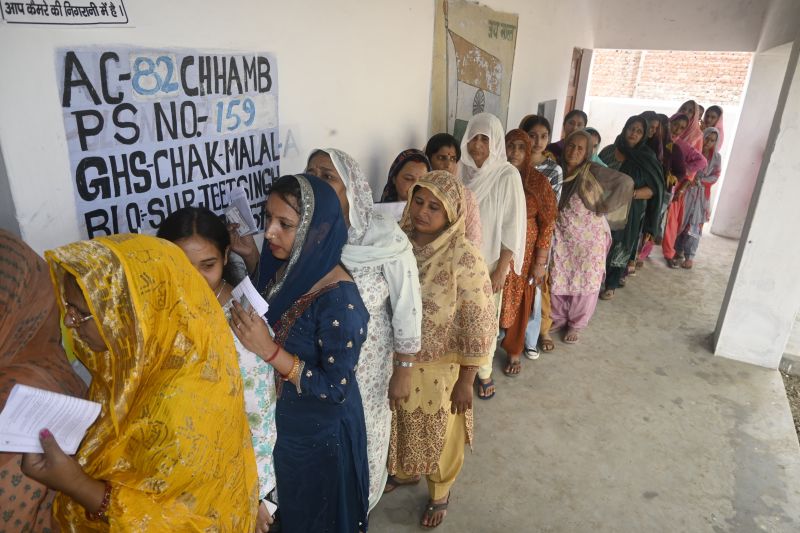People’s voice for complete Caste-based Census is gaining momentum in various corners of the country. In absence of caste census, the country is relying upon a 90-year old data to formulate its developmental policies and schemes for backward and deprived sections of the society. Caste and social justice are interlinked and Caste census can help the government to implement welfare schemes, with pious motto of ‘ JiskiJitniBhagidari , UskiUtniHissedari“.
Caste Census is vital for social equity. A section of people argue that caste-based census may allow social tension to develop between communities in the country. Such fictional argument of a handful of people is creating hurdles in way of all-round development with social justice. If religion-based and language-based census has not created division and hatred in the society as per their claim, how can a complete caste based census create differences in the society?
Actually the various census, conducted after independence cannot be termed as casteless, since not only castes of Schedule Caste and Schedule Tribes are being recorded, but religion-based census too is being conducted. It is beyond the perception of the people that why the Centre is hesitating on a complete Caste-based Census, enumerating OBCs too.
The reference to Caste Census is found in the Rigveda and Kautilya’s Artha Shastra which indicate that Caste or Class categorization was not so nasty as are being seen today. Systematic caste-wise enumeration of population was introduced by the Registrar General of India in 1881 under British Rule, which continued till 1931. In 1941 census too, the caste-wise figures were collected, but the exercise was curtailed due to World War-II and final data could not be published. In 1951, Census exercise was revamped drastically and recording of caste, except SCs and STs, was abandoned. Thus 1931 Census, which included Pakistan and Bangladesh territories too, became the last caste-based census in India.
The first Backward Classes Commission, headed by Kaka Kalelkar, has recommended in its report of 1955 for undertaking caste-wise enumeration of population in Census 1961. The second Backward Classes Commission, i.e. Mandal Commission has highlighted that the report is based on 1931 Census data, which is not adequate and hence next, i.e. 2001, Census should be caste-based. The commission had no way other than to assume inter se rate of population growth of various communities & religious groups over the last half a century to be remaining same. But this was far from reality. The census record of year 1951 and 2011 reveals that the population of SC and ST has increased from 14% to 16.63% and 6.23% to 8.61% respectively. Obviously, the assumption of constant decadal growth of all communities is farce.
In December 1996, the H. D. Deve Gowda Cabinet had taken decision for caste-wise enumeration in Census 2001. But in 2001, Vajpayee led NDA government scuttled the decision on the plead of so-called caste-biases. In June 2010, The UPA government had made commitment for caste census after discussion in both Houses of Parliament. But instead of adding a column in the main decadal Census of 2011, separate Socio Economic Caste Census (SECC) was initiated, whose final report was neither concluded nor made public. On 31st August 2018, after reviewing progress for Census 2021, the then Home Minister promised for collecting data on OBCs first time, but the Government took U-turn in Lok Sabha in 2021 saying a big No to it.
The demand for complete caste-based census emerges every time in Parliament and usually such demand comes from OBCs and other deprived sections of the society and it is constantly and aggressively opposed by the representatives from upper castes, who are dominating the power share despite having nominal population share and are afraid of losing their age-old monopoly.
Bihar Chief Minister Nitish Kumar is leading the chorus for Caste Census and all political as well as social institutions are in its favour. The proposal for caste census in 2021 was unanimously passed by Bihar Vidhan Sabha on 17th February 2019 and again on 27th February 2020. Such resolution has also been passed in Maharashtra Vidhan Sabha on 8th January 2021. Last year Odisha became third state to urge the centre for holding enumeration of Socially and Educationally Backward Classes along with general census in 2021. The National Commission for Backward Classes has also urged the government for the same. But,as Central Government has not accepted the proposal, the various State Government should come forward to conduct the exercise on its own resources on the pattern of Karnataka.
It may be noted that the Karnataka High Court and the Supreme Court had directed the Karnataka State government to provide the latest percentage of a particular caste in the total population of the state, whenever the government plans to extend reservation facility to a particular caste. So, the State government decided to conduct the caste census to know the current status of various castes in the state. The Maharashtra State Commission for Backward Classes (MSCBC) has recommended for Socio Economic and Caste Census by the State government.
Caste Census is the need of the hour to ascertain the exact population of each segment of the society. Data and statistics are the essential tool for policy-making and research. The latest data helps the policy-makers to determine the target and direct the course of policies & actions. With fresh and authentic assessment of the caste-wise population, the economic deprivation levels of different castes in various states could be determined and it would help to tailor reservation policy to ensure equitable representation of all of them.
(Author is a technocrat and academician. He holds Master in Engineering from M.N. Regional Engineering College, Allahabad/Prayagraj)





